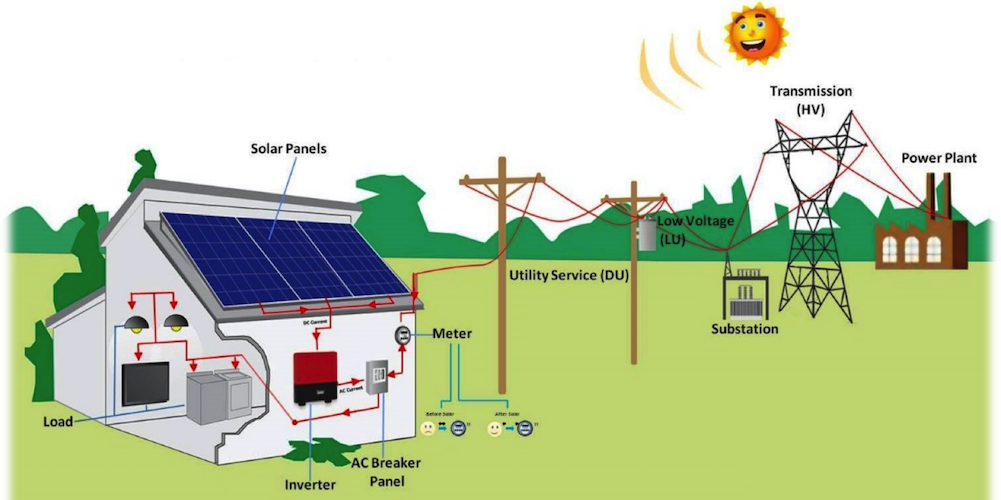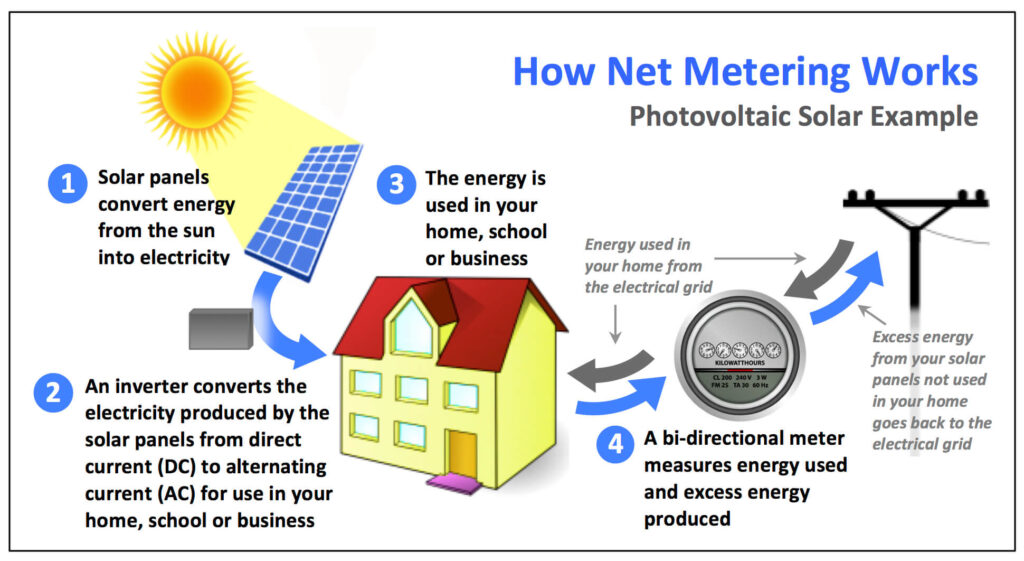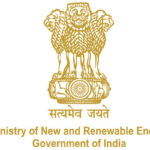
What is Net-Metering in Solar:
A lot of excitement has been developing w.r.t Net Metering policy of Solar Power. Net Metering in simple terms is a mechanism that allows for accounting of units exchanged with grid (Imported as well as exported) by a solar powered consumer. Net-Metering is facilitated by a bi-directional meter that records both imported and exported units through a electricity-line.
Background
While Solar power has advantages of being green and cost-saving for a consumer, it suffers from problem of variability. The rate of solar unit production increases with day-time, peaks at around noon and starts falling thereafter. However, the load of a consumer has marginal variation only.
To compensate for this mis-match a balancing power source is required that can supply units in case of shortage of power and take-up units in case of excess production.
Hence, solar power systems are classified as three types:
- On-Grid Systems: Where this exchange is supported by grid.
- Off-Grid Systems: Where this exchange is supported by Batteries.
- Hybrid Systems: Where the exchange is supported on priority by batteries and then by grid.

How is Net-Metering done ?
Net-metering facilitates accounting of the electricity units exchanged with grids. For enabling net-metering, the conventional electricity meter ( that measures only electricity units supplied to consumer) is replaced by appropriate bi-directional meter (that measures both supplied and exported units). This meter is called as Net-Meter and such accounting method as Net-metering.

Process of Net-Metering
The two-parties, electricity consumer and distribution company, enter into an agreement, called as Net-Metering agreement, which defines the broad terms, conditions and governing norms for such facility.
Governing Rules, Regulations, Bodies:
Most of the states in India have come up with their State policy on Solar, which includes state’s view on Net metering. Based on that, State Electricity Regulatory Commissions, State Renewable Energy Department and State Renewable Energy Commissions have released the regulations governing the arrangement.
Consequently, apart from basic definition, there is considerable variation in required conditions, terms and benefits of netmetering across the states in India.
Recent Articles on Solar Net-Metering:
- RERC extends Net-Metering deadline in Rajasthan to 15th September 2021
- Government allows Net Metering Up to 500 kW for Rooftop Solar Power System
- MNRE Solar Benchmark Cost 2020-21
- Maharashtra issues new Net Metering Regulations 2019
- Delhi releases draft Regulations for Group and Virtual Net-Metering for Rooftop Solar
- UPERC Releases RSVP Regulations 2019 for Net Metering of Rooftop Solar Projects






